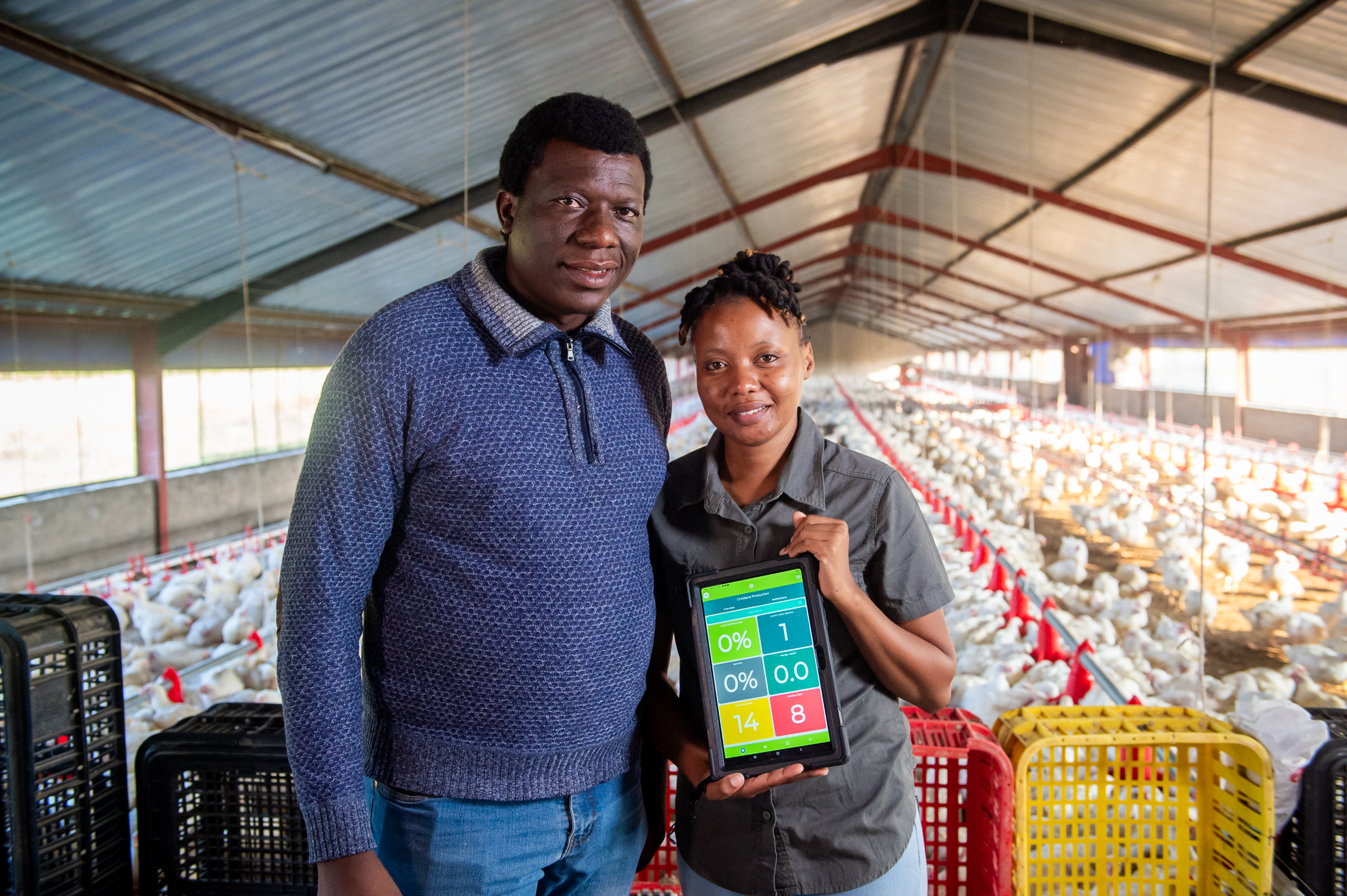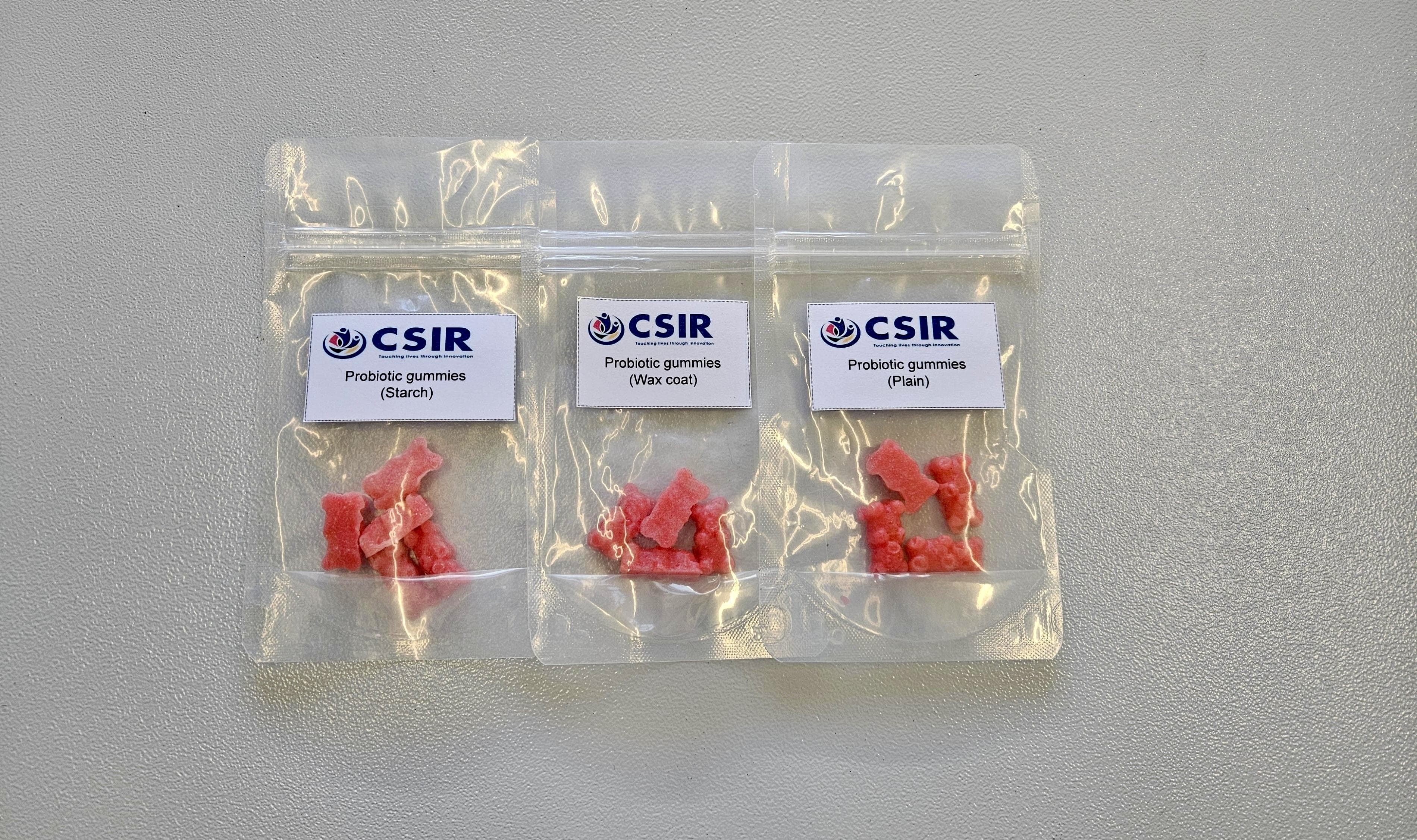CSIR develops affordable probiotic and smart farming app to boost child health and food security
Developing affordable probiotics for paediatric health is a vital step in strengthening children's overall wellbeing, as the early years are critical for the development of a healthy gut microbiome, which plays a key role in digestion, nutrient absorption, immune function, and long-term disease prevention. By supporting the balance of beneficial bacteria in the gut, paediatric probiotics can help fortify the immune system, reduce the risk of infections and allergies, and promote optimal growth and development during childhood.
The Council for Scientific and Industrial Research (CSIR) hosted a hybrid media briefing to showcase the remarkable efforts of young South African researchers who are harnessing science, technology, and innovation to address urgent challenges in food waste, public health, and agriculture. The briefing sought to emphasise CSIR’s contribution over the past 80 years in supporting the advancement and skills development of young people in science, technology, engineering, mathematics, and innovation.
Developing affordable probiotics for paediatric health is a vital step in strengthening children's overall wellbeing, as the early years are critical for the development of a healthy gut microbiome, which plays a key role in digestion, nutrient absorption, immune function, and long-term disease prevention. By supporting the balance of beneficial bacteria in the gut, paediatric probiotics can help fortify the immune system, reduce the risk of infections and allergies, and promote optimal growth and development during childhood.
The CSIR has developed a project titled “Production of Biotherapeutic Limosilactobacillus reuteri for Use as a Probiotic Additive in Paediatric Gummy Supplements”. This initiative aims to establish a localised, techno-economically feasible production process for Limosilactobacillus reuteri (L. reuteri), a well-documented probiotic bacterium known for its health benefits, particularly in paediatric applications. With South Africa currently reliant on imported probiotics, this project could be a game changer in paediatric health. It offers the potential to reduce costs, ensure product transparency, create jobs, and support the local economy through local biomanufacturing.
Speaking at the briefing was CSIR young researcher Lebohang Malata, who further elaborated on this project: “The technology focuses on producing L. reuteri at a manufacturing scale (200 L stirred tank bioreactor) using optimised upstream and downstream processing techniques. The process includes inoculum development, high-density microaerophilic fermentation, biomass separation through centrifugation, and formulation into liquid and gummy supplement prototypes, with a secondary freeze-dried powder variant. The gummy supplements, designed for children, demonstrated >90% survivability in in-vitro simulated gastrointestinal tract (GIT) conditions, surpassing World Health Organization (WHO) recommendations (10⁶–10⁸ CFU/g) and outperforming commercial benchmarks,” she said.
The project addresses South Africa’s reliance on imported probiotics by developing a scalable biomanufacturing process, reducing costs, enhancing product transparency, and fostering economic growth through job creation and import replacement.
Another highlight of the briefing was the CSIR’s pioneering work in tackling food waste and its impact on food security in the country. South Africa is committed to Agenda 2030 and the Sustainable Development Goals (SDGs). SDG 12.3 seeks to reduce food loss and waste by 50% by 2030. The CSIR has done substantial work in establishing a baseline to track progress against this SDG target. Recently, the Food Loss and Waste Initiative (FLWI), South Africa's Voluntary Agreement on reducing food losses and waste, approached the CSIR for assistance in setting a baseline for food loss and waste for the Voluntary Agreement. South Africa’s Voluntary Agreement on reducing food losses and waste commits different players of the food supply chain to collectively reduce food waste by measuring and monitoring their food waste, identifying hotspots and implementing food waste reduction actions to achieve SDG 12.3.
In the heart of Limpopo, where economic challenges often overshadow opportunities, a revolutionary tool is planting seeds of transformation in small-scale agriculture, the CSIR-developed blockchain application (app), ILIMA. CSIR researcher Heinrich Keiser presented the technology during the briefing, which aims to help micro farms gain better access to local and international markets. Despite making up around 65% of farms in South Africa, these smaller farmers take home less than 5% of the industry’s income. ILIMA is set to change that by improving traceability and transparency across the agricultural supply chain, backed by blockchain technology.
“The ILIMA platform seeks to enable sector-wide supply chain visibility, leading to the ability to monitor the movement of goods, improved planning and forecasting, reduced costs and improved environmental impact. This also allows consumers (retail and export) to verify and trace goods from start to finish. The app is focused on agriculture, including crops and livestock, and it is important to understand these sectors in terms of operational requirements for the farmers, as well as information required by retailers to be able to trust the farmers’ supply chains. Blockchain is a decentralised digital ledger technology that securely records transactions across multiple computers and acts as a trusted and verified record of all supply chain transactions. All of the information collected from the farmers can also help increase the overall productivity of each of the farms to stimulate economic growth,” Said Keiser
A pilot study has been completed with the help of a small-scale chicken farmer in Naboomspruit. It will assist small-scale farmers with problems encountered across the supply chain, ranging from access to inputs, effective production and post-harvest processing/storage, to distribution and access to markets, resulting in an increasing poverty cycle. If these problems are addressed, it will reduce poverty levels and unemployment, support skills development, improve food security, ensure import reduction, enable GDP growth and export promotion, which benefits all South Africans.


Captions:
Figure 1: ILLIMA Interface
Figure 2: Paediatric gummy prototypes — starch, wax, and plain coated — developed for the delivery of Limosilactobacillus reuteri as a probiotic additive. Formulated by CSIR Bioprocessing to support gut health in children through a safe, effective, and child-friendly supplement.
-Ends-
Issued by CSIR Strategic Communication
Media enquiries:
Phetolo Phatsibi: Media practitioner
Email: PPhatsibi@csir.co.za
Mobile: 081 396 8871
About the CSIR:
The CSIR, an entity of the Department of Science, Technology, and Innovation, is one of Africa’s leading organisations in scientific and technology research, development and implementation. Constituted by an Act of Parliament in 1945 as a science council, the CSIR undertakes directed and multidisciplinary research and technological innovation, as well as industrial and scientific development, to improve the quality of life of all South Africans.
This year, the CSIR celebrates 80 years of touching lives through innovation. For more information, visit www.csir.co.za
Follow us on social media:
X: @CSIR. Facebook: CSIRSouthAfrica. Instagram: CSIRSouthAfrica. LinkedIn: Council for Scientific and Industrial Research (CSIR). YouTube: CSIRNewMedia

